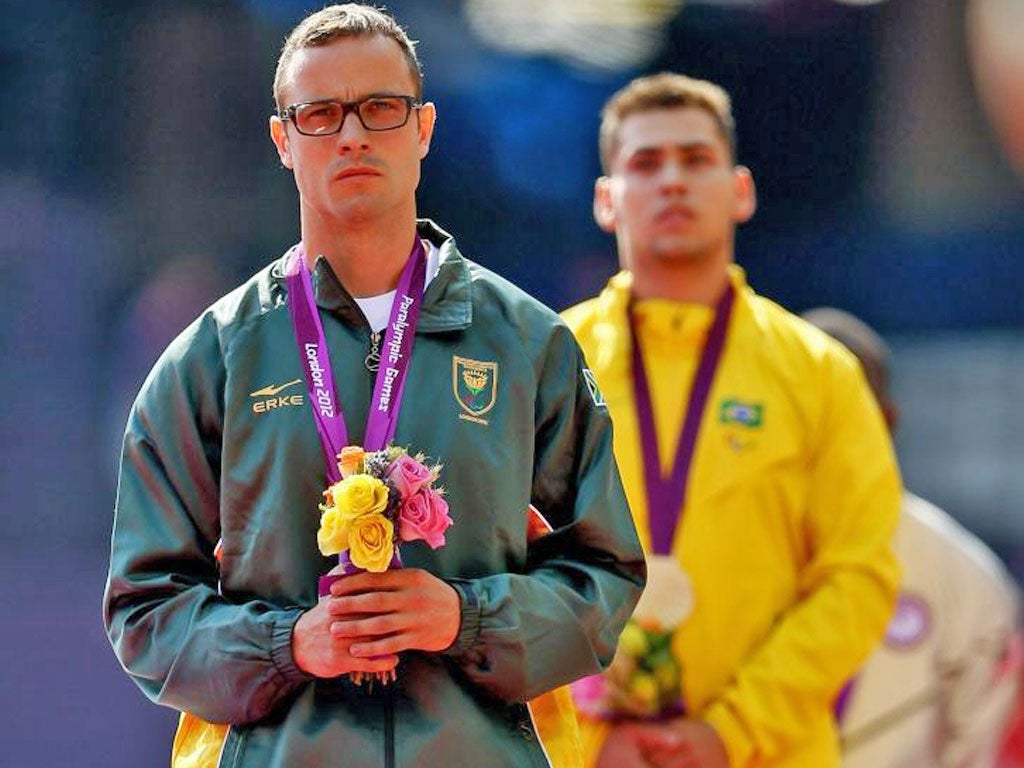James Lawton: Oscar breaks the spell. Truth is, these 'superhuman' athletes err like the rest of us

Your support helps us to tell the story
From reproductive rights to climate change to Big Tech, The Independent is on the ground when the story is developing. Whether it's investigating the financials of Elon Musk's pro-Trump PAC or producing our latest documentary, 'The A Word', which shines a light on the American women fighting for reproductive rights, we know how important it is to parse out the facts from the messaging.
At such a critical moment in US history, we need reporters on the ground. Your donation allows us to keep sending journalists to speak to both sides of the story.
The Independent is trusted by Americans across the entire political spectrum. And unlike many other quality news outlets, we choose not to lock Americans out of our reporting and analysis with paywalls. We believe quality journalism should be available to everyone, paid for by those who can afford it.
Your support makes all the difference.Sooner or later someone had to separate us from the slavish belief promulgated so hard these last few days. It is the one that says Paralympians are a separate and superior breed of athlete beyond any of the vices, including the conceits, of those who are able to compete with less conspicuous handicaps.
It is a view, dreamy and at the same time infinitely patronising, that has created an emotional excess and a pressure on individual success that have inevitably obscured what we might have imagined was the most compelling appeal of this huge festival of frequently brilliant endeavour.
That – if one remembers correctly – was to be the celebration of more than 4,000 cases of great defiance of randomly distributed adversity.
There has surely been plenty of that, but increasingly it has been impossible to ignore the danger that a certain spell might be broken, one that was, miraculously enough, largely unscathed when the 30th Olympics ended last month.
Strange, though, that the man who has done it quite irrevocably is someone who for so long has been seen as the ultimate hero of the Paralympic movement, a man with a whole set of Olympian ideals.
Oscar Pistorius was clearly filled with superb competitive spirit – and the highest ambition – when he fulfilled his dream of running in both the Olympics and the Paralympics, but somewhere along the way he may have lost contact with an essential truth.
It is that if the Paralympics achieve another of his ideals, by relentless examination of the precise help provided by prosthetics and of a mass of categories that are inevitably arbitrary and in some instances just plain convenient, a perfectly balanced contest, they will have flown beyond all previous understanding of the realities of sport.
Nature provides the great Usain Bolt with advantages utterly beyond the resources of science and its increasingly profit-hungry sponsors, the manufacturers of new and ever quicker artificial limbs, when it gives him a stride pattern long enough, and quick enough, to leave all other shorter, smaller, more muscular opponents trailing.
However, we have yet to hear his closest challenger Yohan Blake demanding a new handicapping system... or maybe special categories of the 100 metres dash based on some fine assessment of each sprinter's natural advantages.
Nature will never produce a set of identically gifted 100m finalists, and nor will science provide a similar service for the Paralympics short of a precisely standardised set of prosthetics.
Yesterday, Pistorius, left, made a strategic retreat from his ferocious denouncement of the rules governing artificial limbs which, he contended, had given an unfair advantage to his surprise conqueror in the T44 200m final, Brazil's Alan Fonteles Oliveira. But his apology was merely to do with the timing of his protest in that it took away attention from a gold medal winner's moment of glory.
Undisturbed, though, was the unavoidable conclusion that Pistorius, who went to court with the winning contention that the scientifically imposed spring in his blades did not give him an unfair advantage over his Olympic opponents, has elected himself both judge and jury in the matter of how you lay down a perfectly level running track.
Who is the arbiter of the perfectly fair race? It is the self-appointed Pistorius, who has long occupied the top rank of the Paralympic reward system and, at the first suggestion that it might be under threat, has presented these Games with their first seriously uncomfortable moment.
Join our commenting forum
Join thought-provoking conversations, follow other Independent readers and see their replies
Comments